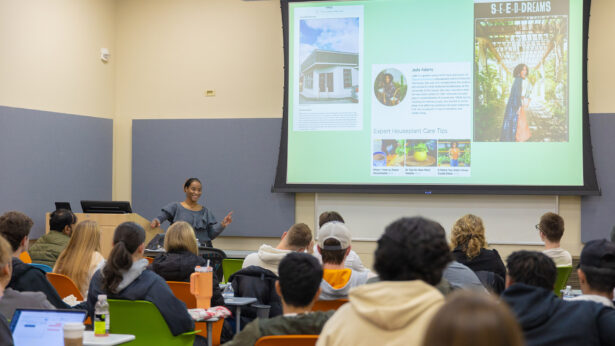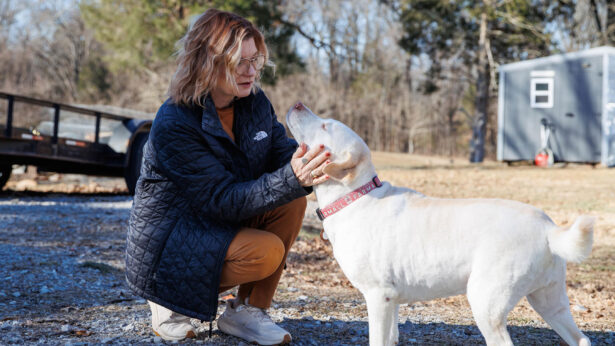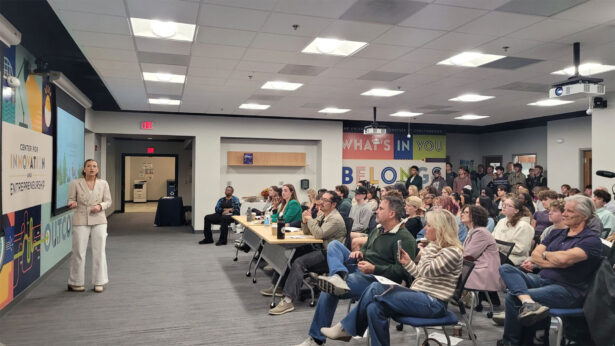In August 2021, Waverly, Tennessee, as well as other parts of Humphreys County and the surrounding area, suffered a tremendous flash flood that claimed the lives of 20 people. One of them was not Debra Ashton. The Waverly woman credits the fitness training she received through the “Stay Strong, Stay Healthy” class taught by UT Extension with giving her the ability to save her life. Ashton was trapped in her living room as floodwater rose around her. She found the strength to escape her home and find shelter in the bed of a pickup truck; then, when knocked back into the water, she was able to grab a log. She held on and floated to safer ground. “I grabbed my arms across it and put it up against my chest. I’ll admit I put a smile on my face,” Ashton says.
In Humphreys County, the “Stay Strong, Stay Healthy” class is taught by UT Extension Family and Consumer Sciences Agent Denise Schaeffer. The goal is to teach adults healthy habits and attainable exercise goals. Ashton believes, because of that class, she was able to survive the deadly floodwaters.
UT Turfgrass Works with FIFA
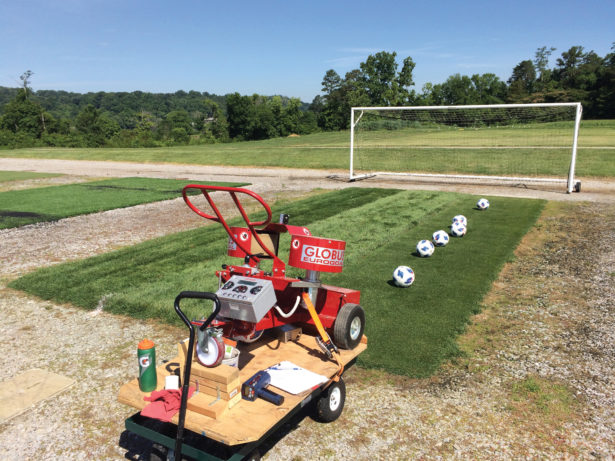
The International Federation of Association Football (FIFA) World Cup Tournament comprises the most watched athletic competitions globally, and the UT turfgrass research team will provide the foundation for the 2026 events. Spread across 16 stadiums and approximately 150 practice facilities in the host countries of Canada, the U.S. and Mexico, a turfgrass project led by John Sorochan, a distinguished professor of plant sciences, will identify the best combination of grass types, root zone and reinforcement systems to provide excellent, consistent and safe playing conditions designed to FIFA standards. The different growing environments will range from cool season and humid regions to warm-season arid and tropical regions and from transition zone (cool and warm season) regions to an indoor (shaded) environment. Sorochan will have assistance from a team of UT undergraduate and graduate students and John Stier, associate dean of the Herbert College of Agriculture, as well as a team of researchers from Sorochan’s alma mater Michigan State University.
UT Serves Up Homegrown Beef
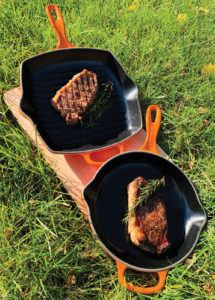
High-quality, locally sourced UT Beef is now being served on the UT Knoxville campus. Produced at the Northeast Tennessee AgResearch and Education Center in Greeneville, the farm-to-table product supports sustainable agricultural production by utilizing locally grown beef as a reliable food source while maximizing supply chain resiliency. David White, a food scientist and associate dean of UT AgResearch, proposed that Justin McKinney, director of the Northeast Tennessee AgResearch and Education Center, develop the program as a model for sustainable protein production focused on local sales. Through a new partnership with campus dining services, managed by Aramark, and with the support of UT administrators, UT Beef hamburgers, casseroles and other dishes are now on the menu.
